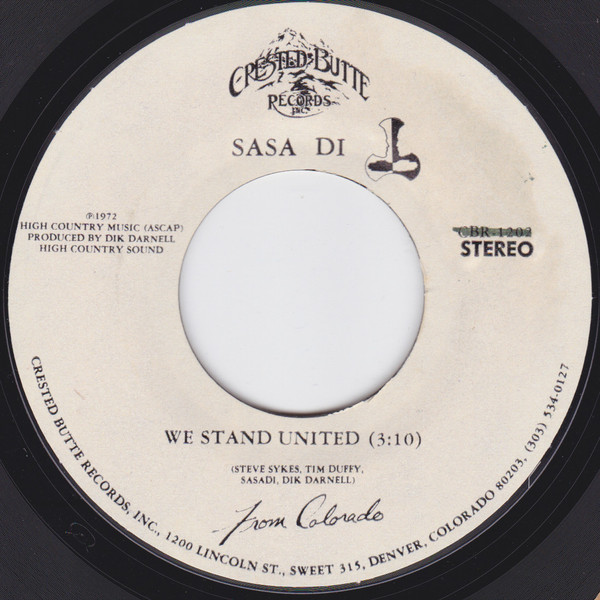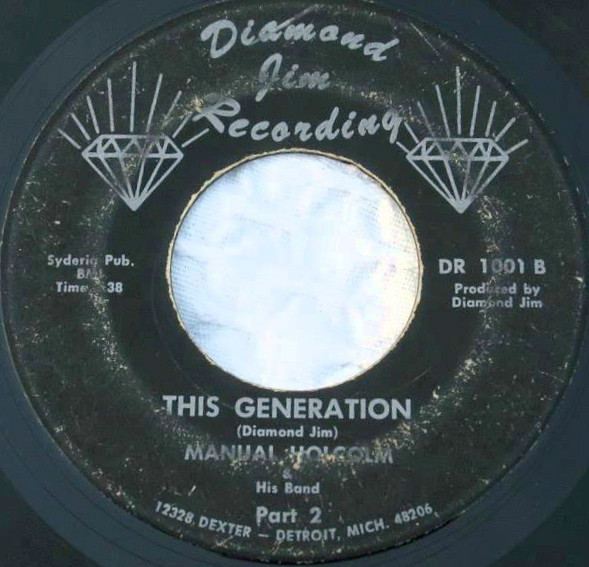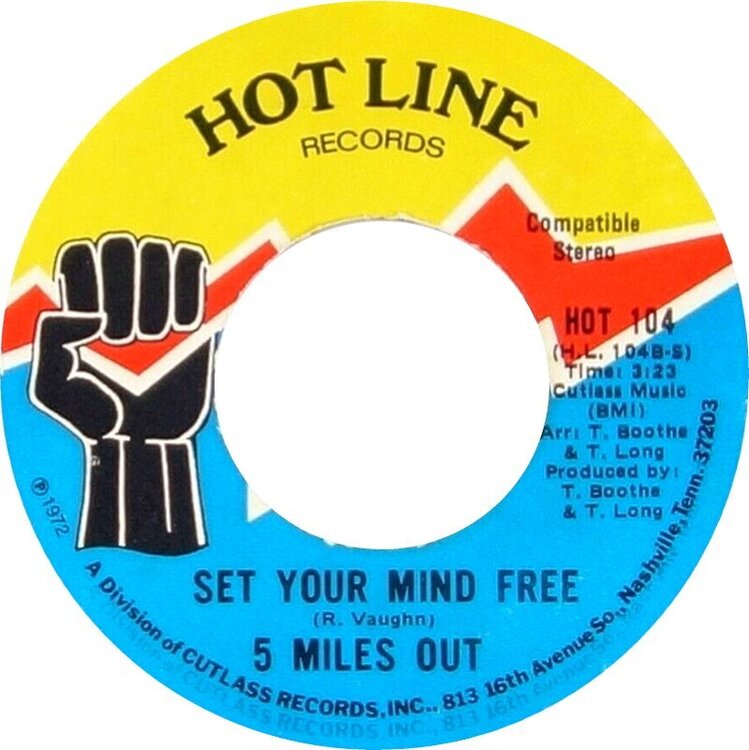Everything posted by Tommy1
-
Sasa Di
I'm not an expert on EWF, but according to "BlackPast - African American History", they were formed in Chicago in1968 as Salty Peppers, and changed the band’s name to Earth, Wind & Fire in 1970, three years before this article.
-
Sasa Di
Thanks! I did find a lot about Crested Butte Records, but not this. And yes, that was interesting info!
-
Sasa Di
-
Manual B. Holcolm & His Band – This Generation
I see. Thanks a lot for your help!
-
Manual B. Holcolm & His Band – This Generation
Thanks! That's what I though too cos of the lyrics. His worries of the generation: “Lord, help this generation/ Help them love one another, Lord, and understand/ You know this generation, is getting out of hand”, could of course refer to the riots in Watts, but if it's late 1967 it could be Detroit, or if it's late 1968, it could be riots after the killing of Martin Luther King. I'm gonna use this in a book. Is there a way to be 100% sure?
-
Manual B. Holcolm & His Band – This Generation
I saw that, 45cat.com also says 1966, so maybe it is?
-
Manual B. Holcolm & His Band – This Generation
-
Final Decisions “I Feel No Pain”
Can someone help me with a readable picture of the info-side (the cover) of Final Decisions “I Feel No Pain” on Hayley records?
-
5 Miles Out
Can't find any info on this obscure band. Seems like just this 45 (plus UK release). Does anyone know anything about them? All info appreciated!
- Help with lyrics
-
Help with lyrics
Thanks a lot for the tip, I will do that!
-
Help with lyrics
Anyone up for the first part? I'm gonna use the lyrics in a book I'm writing.
-
Getto Kitty Getto kitty production
I agree, it seems a lot! And your guess on more tracks is exciting.
-
Help with lyrics
Yes! 👍 But the first part is really hard!
-
Getto Kitty Getto kitty production
Impressive, thanks again Roburt!
-
Getto Kitty Getto kitty production
Did Getto Kitty ever release anything else under that name?
-
Getto Kitty Getto kitty production
What do you think is the correct release year for this? It was copyrighted December 29, 1972, but Cash Box, and this survey don't mentioned it before early 1973.
-
Getto Kitty Getto kitty production
This is what I've found on the Stroud label in music magazines: Cash Box, Dec, 23, 1972: "Andy Stroud has formed a new record company and announced that his first release on Stroud Records is an LP, "Nina Simone Sings Billie Holiday". The LP features Holiday classics from the Motown film, "The Lady Sings The Blues"" Cash Box , Jan, 27, 1973: "Andy (Andrew) Stroud has entered the R & B' field with the formation of his own label, "Stroud". The first single release is, "Stand Up And Be Counted" performed by "Getto Kitty"." Also Cash Box, Dec, 30, 1972:
-
Getto Kitty Getto kitty production
Thanks a lot Roburt 👍 I really appreciate it! This is what I love with Soul-Source!
-
Getto Kitty Getto kitty production
Has anyone got some info on this band? I know it’s the first single release on the label started by Andy (Andrew) Stroud in 1972. Could it be session musicians used just for this record, named after “Getto kitty productions”?
-
Help with lyrics
Thanks a lot Simon! That made it much clearer, but still hard to get the first part.
-
Help with lyrics
Hoping "Feebasing" is the right place for this question. I need some help with the lyrics of Moses Dillard & The Text Town Dispaly "We Gotta Come Together". What is he singing here (from 1:32). “Talking bout some of us…??...??..??/ Let us not..??.., we got a long way to go” All help is appreciated! 🙏
-
Muhammad Ali related questions
Thanks a lot! Both Discogs and 45cat has "Shuffle with Ali" as a 1966 release. But you might be right that it came out early 1967. Muhammad Ali introduced the "Ali shuffle" against Cleveland Williams in November 14. 1966. It is possible to get it out before 1967, but it bit short time?
-
Muhammad Ali related questions
And, if you know: When was the "Shuffle with Ali" 45 made, and did Ali go to the studio to record the intro and outro?
-
Muhammad Ali related questions
Thanks a lot Kenb! Where did you find/ get this story?






